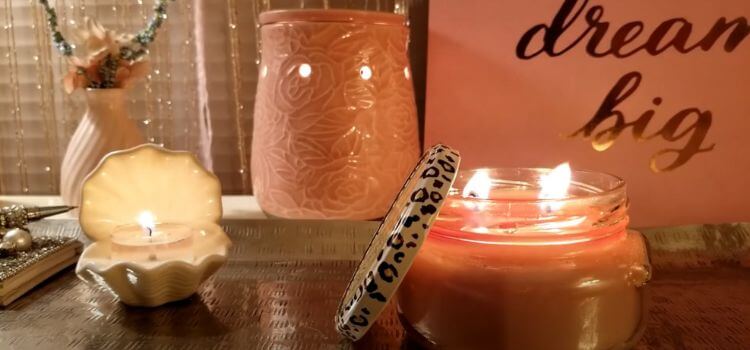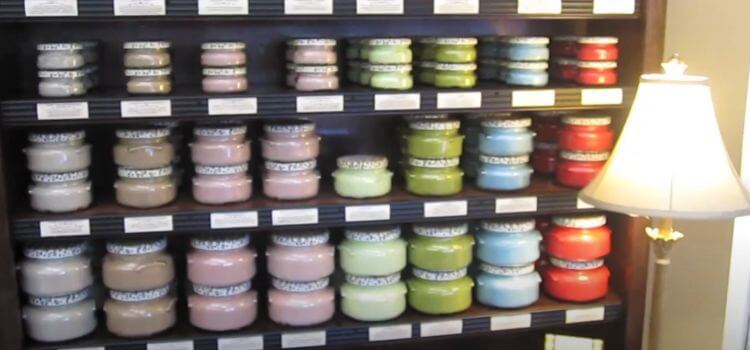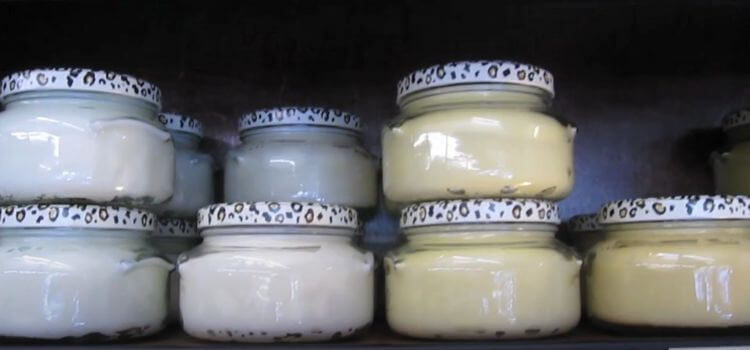As an Amazon Associate, I earn from qualifying purchases

Tyler Candles are not inherently toxic but may release harmful chemicals when burned. The ingredients used in Tyler Candles, such as fragrance oils and paraffin wax, can emit toxins when heated.
Tyler Candles have gained popularity for their luxurious scents and elegant packaging. Nonetheless, worries over the possible health hazards of burning these candles have been raised. Many consumers are curious about whether Tyler Candles are toxic and if they should be cautious when using them in their homes.
We will explore the ingredients in Tyler Candles, discuss the possible health effects of burning these candles, and provide tips on safely enjoying scented candles in your living space. Let’s delve into the world of Tyler Candles to uncover the truth about their toxicity and how it may impact your well-being.
Introduction To Tyler Candles
Introduction to Tyler Candles:
Tyler Candles have gained immense popularity for their enticing scents and stylish packaging. However, worries have been expressed about the possible toxicity of these candles.
Popularity And Concerns:
- Tyler Candles are widely loved for their luxurious scents and elegant designs.
- Some consumers worry about the chemicals and fragrances used in Tyler Candles.
Purpose Of The Article:
- To explore the reasons behind the popularity of Tyler Candles.
- To address the worries about the possible toxicity of these candles.
Ingredients In Tyler Candles

Wax Composition
Tyler Candles is known for its high-quality wax composition, a proprietary soy and paraffin wax blend. This unique blend allows for a clean and even burn, producing minimal soot and maximizing fragrance throw.
Fragrance Components
The fragrance components in Tyler Candles are carefully selected to create captivating scents that fill the room. They are made from a blend of essential oils and high-quality synthetic fragrances, ensuring a long-lasting and consistent aroma.
Wicks And Additives
Tyler Candles uses lead-free cotton wicks that are designed to promote an even burn and minimize smoking. Additionally, they incorporate additives that enhance the candle’s performance, such as colorants and stabilizers, to maintain the integrity of the fragrance.
Understanding Candle Toxicity
Are Tyler Candles Toxic? Let’s delve into candle toxicity to understand the potential risks of burning candles.
What Makes A Candle Toxic?
When burned, candles can emit harmful substances, such as lead, benzene, and toluene. These chemicals can pose health risks.
Health Implications Of Toxic Candles
- Prolonged exposure to toxic candles may lead to respiratory issues.
- Asthma and allergies can be brought about by the chemicals released from burning candles.
- Headaches and dizziness are potential symptoms of inhaling toxic candle fumes.
Assessing Tyler Candle Safety

Company Claims And Standards
Tyler Candle Company asserts that its products are created with the highest-quality ingredients to ensure safety for both consumers and the environment. The company maintains strict manufacturing standards to meet regulatory requirements and customer expectations. Tyler Candles are formulated to provide a pleasant and safe experience for users.
Independent Testing Results
Independent testing of Tyler Candles has been conducted to confirm their adherence to industry standards and safety. Results from these tests have indicated that Tyler Candles meet or exceed safety guidelines, assuring consumers regarding the product’s safety and quality. These tests testify to the company’s commitment to transparency and accountability.
Comparing With Other Candle Brands
When comparing Tyler Candles to other brands, it’s essential to consider the composition of the candles and their impact on the environment and human health.
Natural Vs. Synthetic Candles
Natural candles are made from ingredients like beeswaxwax or soy wax, which are renewable and biodegradable. In contrast, synthetic candles often contain paraffin wax, a petroleum byproduct that emits harmful chemicals when burned.
Eco-friendly And Non-toxic Alternatives
Eco-friendly candles prioritize sustainability and minimal environmental impact. Look for non-toxic alternatives such as candles made from soy wax, coconut wax, or beeswax, which produce less soot and toxins when burned.
Consumer Reports And Reviews

Tyler Candles have been a popular choice for consumers due to their pleasant fragrances. Still, concerns have been raised regarding their toxicity. According to consumer reports and reviews, some Tyler Candle scents contain harmful chemicals, including phthalates, which can negatively impact human health.
Research and consideration of alternative, safer candle options is recommended.
Consumer Reports and Reviews User Experiences Many consumers share their experiences with Tyler Candles, highlighting both positives and concerns—feedback on scent and safety 1. Users often comment on the enticing scents offered by Tyler Candles. 2. Some consumers have raised safety concerns, prompting a closer look at the candle’s ingredients. 3. Some reviews indicate irritation or allergic reactions from certain scents. Overall, consumer reports and reviews provide valuable insights into the quality and safety of Tyler Candles.
Expert Opinions On Candle Safety
Dermatologists And Allergists’ Perspectives
Candles often create a cozy ambiance, but concerns about their safety have led many to question their potential health risks. Dermatologists and allergists are well-versed in the possible effects of fragranced products on skin and respiratory health. According to experts, the chemicals used in scented candles can trigger allergic reactions and skin irritation, especially in individuals with sensitivities. It’s essential to be mindful of candle ingredients to minimize the risk of adverse reactions.
Indoor Air Quality Experts’ Insights
Indoor air quality experts play a crucial role in assessing the impact of candles on the air we breathe. They emphasize the importance of using candles made from natural, non-toxic ingredients to avoid the release of harmful pollutants into the air. Synthetic fragrances and paraffin wax, commonly found in mass-produced candles, can emit volatile organic compounds (VOCs) and particulate matter, compromising indoor air quality. Choosing cleaner-burning alternatives, such as soy or beeswax candles, can help mitigate these concerns.
Improving Indoor Air Quality
Proper candle usage: Place candles away from drafts and flammable items.
Ventilation and air purifiers: Open windows for fresh air circulation.
Utilize air purifiers to reduce airborne particles.
Making An Informed Decision

When designing a warm and welcoming space in your house, candles are a popular choice. However, it’s essential to consider the potentially toxic effects of certain candles before lighting them in your living space. Making an informed decision about the candles you use is crucial for the health and well-being of your family.
Balancing Scent And Safety
Choosing suitable candles involves finding a balance between enjoying the fragrance and ensuring the safety of your indoor environment. Awareness of the ingredients used in candle production and their potential health implications is essential. Toxic chemicals such as paraffin, lead, and synthetic fragrances can be harmful when released into the air. Opting for natural and non-toxic options can help you achieve a pleasant scent without compromising your health.
Choosing The Right Candles For Your Home
When selecting candles for your home, it’s essential to prioritize safety and quality. Seek for candles manufactured with organic materials like beeswax or soy and scented with natural essential oils instead of artificial fragrances. Check the label for toxic components and choose candles free from parabens, phthalates, and other harmful substances. Additionally, consider using candles with lead-free wicks to minimize potential health risks further.
Frequently Asked Questions
Tyler Glamorous Wash is not toxic. It is safe for use in laundry.
Yes, Tyler candles are soy candles. Soy wax is used in Tyler candles to provide a clean and long-lasting burn.
To know if a candle is toxic, check the ingredients label for paraffin wax, synthetic fragrance, and lead wicks. These components, such as benzene and toluene, can release harmful chemicals when burned. Choose candles made from natural wax and essential oils instead.
When burned, Paraffin candles may release toxins and carcinogens, potentially causing health issues. Opt for alternatives like soy or beeswax candles for a safer option.
Conclusion
Overall, Tyler Candles are not toxic when used as intended. Nonetheless, knowledge of the possible health hazards connected to scented candles is essential. It’s recommended always to burn candles in a place with adequate ventilation and keep your mouth closed to the fumes.
As with any product, reading the label and being informed about the ingredients is essential. With proper use and precautions, Tyler Candles can offer something fun and safe to your house.
As an Amazon Associate, I earn from qualifying purchases
Leave a Reply